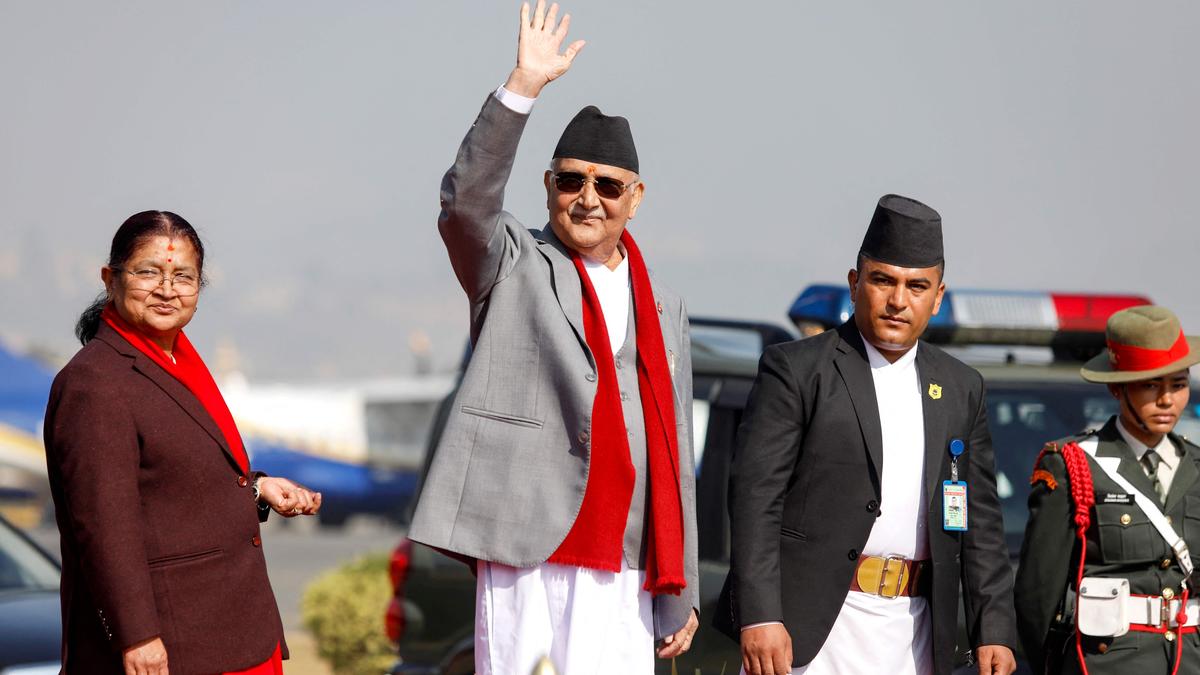
Oli secures BRI deal in Beijing with support from key ally Nepali Congress Premium
The Hindu
Nepal shifts from grants-only stance to aid assistance financing with China under Belt and Road Initiative cooperation framework.
From “no loans but grants only,” Nepal finally settled for “aid assistance financing” as Nepali and Chinese officials on Wednesday inked a Belt and Road Initiative (BRI) cooperation framework deal in Beijing during Prime Minister K.P Sharma Oli’s four-day visit to China.
The signing paves the way for advancing Chinese investment and cooperation in Nepal under the BRI, to which Kathmandu signed up for in 2017.
In the days leading up to Mr. Oli’s visit to the north, there was a debate about whether Mr. Oli should sign the BRI implementation plan, a proposal Beijing had sent in 2020. A rigid stance by his coalition partner, the Nepali Congress (NC), against loans, had led to formation of a task force to revise the Chinese proposal.
Nepal subsequently revised the “BRI implementation plan” to “Framework for BRI Cooperation” emphasising “grant financing cooperation” and sent the proposal to the Chinese side for a review.
Officials said the Chinese initially sought to replace “grant financing” with “assistance financing”, but after further negotiations, the two sides agreed on “aid assistance financing”, leading to the inking of the deal.
As many as 10 projects have been listed under “aid assistance financing”, which are related to trade, infrastructure, connectivity, technology and cultural exchange.
“This deal is significant in two ways. First, it provides fresh momentum to Nepal-China cooperation under the BRI, seven years after Nepal signed up for the initiative,” said Pradeep Gyawali, a former Foreign Minister and Deputy General Secretary of the Communist Party of Nepal (Unified Marxist-Leninist), or the CPN-UML. “Second, for the first time, two major parties have made a common position on Nepal’s foreign policy conduct. This sets the foundation for providing a certain direction to our foreign policy.”













